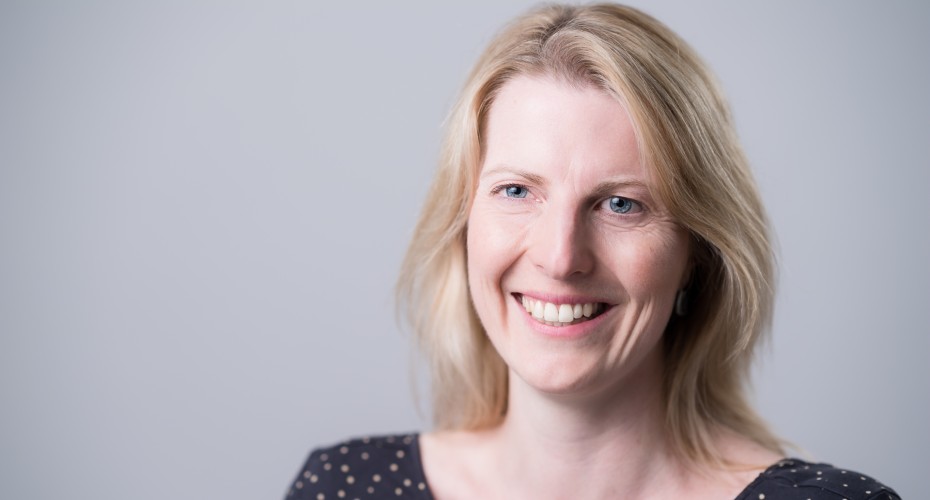
Philippa during her University years
Philippa Makepeace OBE
Alumna Philippa Makepeace OBE (BA Political Science and Government, 2002 & MA Middle East Politics, 2003) is Director of Global Supply Chains in the Department for International Trade (DIT) and leads work to strengthen resilience in supply chains.
Philippa has been a civil servant for more than a decade and has worked in HM Passport Office, Home Office, Cabinet Office, Foreign and Commonwealth Office and the Department for International Trade. She most recently took up the role of Director Global Supply Chains in the Department for International Trade (DIT) in November 2020 where she is leading work to strengthen resilience in supply chains.
Prior to that, Philippa held the role of Head of Consular Assistance in the Foreign and Commonwealth Office for four years. In this role, Philippa led the team responsible for policy, UK operations and the FCO’s 24/7 response team. Philippa also received an OBE in the 2020 New Years Honours for services to British nationals overseas in recognition of her work in this area.
She says: “I loved my time at Exeter. I had an amazing grounding in UK and international politics in the Politics department, with a group of people in my cohort who had wildly differing views on how the country – and the world – should be run. Discussing issues with my tutor group challenged me and my ways of thinking, helped me learn quicker and engage in issues more deeply than I would have before. Being exposed to different political views from the start has also helped me when working with Ministers from whichever political party the country has chosen to vote into power.
“But alongside the formal learning, I built my wider experiences. I probably spent as much time in the music department as in the politics department! Having the time to be more than one thing – more than my degree course but also a member of Footlights and the university choirs as well as the social focus of my amazing hall (Kilmorie) gave me space to grow into the person I now am. And I’m very grateful for it.”
Working in the civil service has provided Philippa with many career highlights including supporting G8 negotiations and taking the record of the Leaders discussion while working in the Cabinet Office on counter-terrorism issues. As well as running the logistics for the Government’s crisis machinery – known as COBR for incidents from flooding to Prince William and Catherine’s marriage.
She says: “I’ve been lucky enough to travel to meet teams and stakeholders across the globe, from Yemen to LA to Peru. But most importantly, I’ve had opportunities to improve the ways in which the UK Government supports British people – from engaging people who were directly affected by flooding to help create policy recommendations which take into account how real people react in a flood to improving support for victims of rape and sexual assault when the incident happens overseas.
“The highlights of my life outside work are a little more sedate! I’ve sung in St Paul’s Cathedral, St Martins in the Field and the Royal Albert Hall with the choir in London where my husband and I met. And we fairly recently walked Offa’s Dyke raising money for MIND.”
In her previous role as Head of Consular Assistance at the Foreign and Commonwealth Office (now Foreign, Commonwealth and Development Office) Philippa provided support to British people in difficulty overseas and is particularly proud of what she achieved during her time working there.
She says: “We covered everything – from lost passports to issues such as imprisonment, murder, forced marriage and child protection. Last year, we mounted the largest repatriation of British people as the pandemic struck first China, and moved to the rest of the world. We worked round the clock to support people to return to the UK. This made the headlines at the time but behind the scenes it was hours of painstaking efforts. The Indian Government needed individual overland travel plans submitted by the Embassy for every single British person who needed to reach an airport. The initial repatriation flights from Wuhan needed similarly detailed planning, and I have a strong memories of checking off each individual getting on the planes at 3am in the crisis centre of the Foreign Office.
“But what sticks in my mind more than the crises are the individual stories, and those we helped without media attention. A couple of years ago, two young girls came to our attention. They were living in a red light district in south East Asia. They had been left there several years before by their parents to live with their grandfather and his local partner. The grandfather had since died and the girls had lost all connection to their family, and were living in a home where they were at risk of falling into prostitution or drug dealing.
“We were told about their situation and consular staff visited them. We worked with UK social services to try to find out which council could take responsibility for them. Their parents were now based in Scotland and Wales, and had children in care in a couple of English counties. This was not straightforward – with limited resources, social services are often understandably reluctant to take on complex cases when it’s not clear individuals have links to their areas – but together we found a way through for one council to take responsibility. We were then able to prepare the girls for their move, sharing photos of their foster family and home they would move to. We helped the girls reach the airport, and arranged a chaperone to accompany them to the UK. Those girls are now safe in the UK and building their new lives here.
“It is a tiny single story from the 22,000 cases each year but one which I believe shows the civil service at its best – no one was advocating for those girls, they were not in the news, there was no petition online, they had no family calling for their return. But it was in their best interests to be back in the UK, and the civil service ensured it happened.”
For Philippa, it is a given that women, as well as men, should hold roles at every level in organisations – including the most senior. She says: “I have never felt or been held back while in the civil service, and I see no reason why women should be held back in any other profession or walk of life – it is after all 2021, not 1971.
“Women, being around 50% of the population, do not hold any unique key to doing things better or differently, but organisations that reflect the make-up of society are stronger because of the diversity that brings. Most important for me, is looking at the reasons for inequality in senior positions and fixing at the earliest opportunity. Proactive policies which support opportunities for all, such as shared parental leave, are a great way to unpick historical and cultural barriers which have held women back in previous generations.”
In terms of Philippa’s plans for the future, she says: “My immediate plans are to wait for lockdown to finish and see my friends and family – I have missed seeing them so much. I have hardly even seen my godson who is almost a year old already. I cannot wait for the time when we can all meet and catch up.
“From a career point of view, I have never had a plan - instead I have found that having the courage to take opportunities has expanded my life experiences in a way that, for me, making a plan could never have done. In doing so, I have built a career which continues to be challenging and fulfilling every day. Public service is a really worthwhile and exciting career and I hope I can continue to work in this sphere for years to come.”
Which woman or women inspires you/is your role model/s?
“On reflection, all my role models, male and female, have one thing in common – they are comfortable being themselves and through that comfort, secure enough to give space for everyone else to be themselves too. I don’t mean that they make it into a virtue, or tell everyone to ‘be themselves’, just a sense that everyone being different is not a threat or an opportunity – it’s just how the world is.
“My sister was a very formative role model to me. She is a few years older than I am so I have always had the advantage of seeing her tackle life events first – school, university, and career. She has always forged her own path, sometimes in the face of significant opposition. She has always listened, not just to others, but also her own counsel and seeing her do that has meant I have tried to do the same.
“More recently, Bernadette Kelly CB (Permanent Secretary in Department for Transport) – an excellent role model - said that ‘if you were doing things in your job which made you nervous or scared you, it was a good sign that you were stretching outside your comfort zone and growing your capabilities as a leader.’ It’s been a message which has stuck with me, and has made me more open to saying yes to things which otherwise I would have turned down.
“Right now, I am drawing inspiration from a very close family friend, who found out during lockdown that she has terminal cancer. Her pragmatic but positive approach to life has always been an inspiration to me, and a support at very difficult times in my own life. The way in which she is responding to the hand she has been dealt is humbling. She is an extraordinary woman.”

